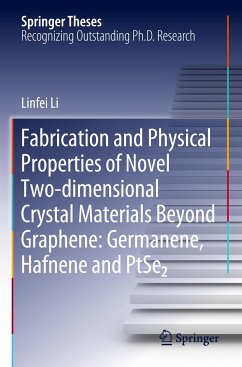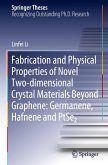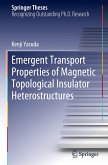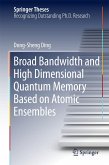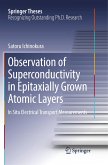This thesis reports on essential experimental work in the field of novel two-dimensional (2D) atomic crystals beyond graphene. It especially describes three new 2D crystal materials, namely germanene, hafnene, and monolayer PtSe2 fabricated experimentally for the first time, using an ultra-high vacuum molecular beam epitaxy (UHV-MBE) system.
Multiple characterization techniques, including scanning tunneling microscope (STM), low energy electron diffraction (LEED), scanning transmission electron microscope (STEM), and angle-resolved photoemission spectroscopy (ARPES), combined with theoretical studies reveal the materials' atomic and electronic structures, which allows the author to further investigate their physical properties and potential applications. In addition, a new epitaxial growth method for transition metal dichalcogenides involving direct selenization of metal supports is developed. These studies represent a significant step forward in expanding the family of2D crystal materials and exploring their application potentials in future nanotechnology and related areas.
Multiple characterization techniques, including scanning tunneling microscope (STM), low energy electron diffraction (LEED), scanning transmission electron microscope (STEM), and angle-resolved photoemission spectroscopy (ARPES), combined with theoretical studies reveal the materials' atomic and electronic structures, which allows the author to further investigate their physical properties and potential applications. In addition, a new epitaxial growth method for transition metal dichalcogenides involving direct selenization of metal supports is developed. These studies represent a significant step forward in expanding the family of2D crystal materials and exploring their application potentials in future nanotechnology and related areas.

